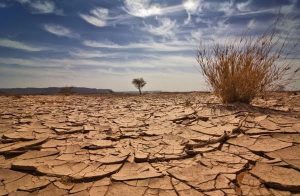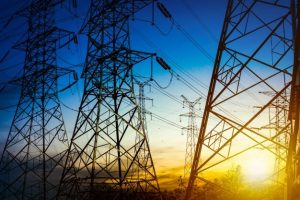By Mark Amaza* and Ifeoma Malo**
When the Scaling Off-Grid Energy (S.O.G.E.) project was launched in Nigeria in late 2017, its goal was to increase access to electricity and reduce the number of unelectrified people in Nigeria. This is in tandem with the goal of the S.O.G.E. Grand Challenge for Development which is funded by the Global Development Lab of the United States Agency for International Development (USAID) and Power Africa: to provide 20 million households in Sub-Saharan Africa with access to modern, clean and affordable electricity through distributed solutions.
As the largest off-grid market in sub-Saharan Africa with 74 million people not having access to electricity as well as only 25% of the 106 million connected to the grid enjoying up to 4 hours of power daily, it was evident that the success of this project in Nigeria was pivotal to the achievement of this goal.
As co-implementers of this project in Nigeria, FHI360 and Power for All worked with governments at national and sub-national levels on decentralized renewable energy (DRE) solutions to increase electrification rates regionally and at state level in order to meet the Federal Government’s policy targets of achieving a 75% electrification rate by 2020 c.
We also adopted a three-pronged approach in our strategy:
- To train policymakers at state and regional levels on how DRE solutions can accelerate electrification rates within their domains and how they can attract investment into DRE in their states and regions;
- To establish a multi-stakeholder taskforce across the industry to confront the biggest barriers to growth and work at dismantling them; and
- To test a market intelligence platform that will empower the private sector, policymakers, researchers and journalists and provide access to the most accurate information on DRE in Nigeria and globally.
What the SOGE Project Achieved
The training workshops for state and regional policymakers, tagged DRE101/X-Learning workshops were held in eight states across five regions of the country and were attended by about 400 policymakers from 18 state governments in total. These workshops have increased the awareness level of the policymakers regarding DRE solutions and increased their options of increased access to electricity in their domains.
The workshops have produced numerous outcomes, which include plans for states to set up regional taskforces to drive DRE in their domains, research on how some states can share power generated especially through decentralized energy, and with states pledging to adopt DRE policies and plans. Other outcomes also included collaborating with neighboring states to set up industrial hubs for the assembly of DRE components and numerous exploratory discussions with developers on DRE investments and projects in their domains.
The taskforce which is called the D.R.E. Taskforce was drawn from the private sector, government, donor agencies, civil society organizations, trade associations, and investors. It tackled the most pressing challenges facing the sector, across five focal areas: (1) zero duties and tariffs for the sector, (2) collaborative data sharing, (3) consumer awareness, (4) end-user payments and (5) support for standardization of equipment and components.
The taskforce has scored tremendous successes, such as the sustained engagement with government authorities over the imposition of a 10% import duty on solar components. This new and sudden duty translates to an increased cost of DRE solutions and consequently makes the government’s projections and targets on energy access harder to meet. . The taskforce met several times with representatives of the Federal Ministry of Finance and the Nigerian Customs Service on the new duties to discuss how to go about resolving the challenge. Since that meeting, there has been sustained engagement with government officials on removing the tariffs or granting a sector-wide waiver on paying import duties for solar panels and components.
The taskforce had also identified the challenge of simplified payments that will enable the target market to pay for DRE solutions as a barrier to growth. It recognized that a solution to this barrier was the activation of digital finance solutions such as mobile money to enable end-users pay for services.
The taskforce collaborated with the United States Agency for International Development (USAID) on an analysis of the Digital Finance Solutions landscape, including how to enable a simplified and working system, and how the DRE sector will benefit from it. This analysis formed the basis of engagement between the taskforce and the Financial Inclusion Secretariat of the Central Bank of Nigeria which seeks to deepen financial inclusion in Nigeria.
These engagements were part of the efforts that culminated in the Central Bank creating regulations that will allow for the establishment of payment service banks, which will enable the greater use of mobile money as well as other digital finance solutions in Nigeria. The take-off of mobile money and payment service banks would revolutionize the sector and will greatly reduce its cost of payments collection; already, the country’s largest mobile operator, has announced its intention to set up a payment service bank to drive its mobile money service, with many more expected.
There were also major strides taken by the taskforce to increase consumer awareness, especially through regular appearances in different forums including the media on how DRE solutions can increase energy access. It also provided support to the Renewable Association of Nigeria (REAN) in working with government organizations and other donor programs in setting new standards for renewable energy components and products in order to prevent the entry of sub-standard goods into the market.
Another area where the taskforce has made great progress is in the area of collaborative data sharing where it sought to harmonize the various market data that exists currently but in silos. This caused the challenge of the data being limited in scope with doubtful accuracy and with market players not knowing where to get critical information, which substantially increases the costs of developing DRE solutions such as mini-grids.
The taskforce conducted a mapping of data sources for the sector and has started taking steps towards more data sharing. It also tested the Platform for Energy Access Knowledge (PEAK), an online interactive database which curates, organizes, synthesizes and transforms large, growing bodies of data into “digestible,” sharable and useable knowledge targeting key influencers in the decentralized renewable energy sector.
The members of the taskforce were introduced through webinars and tutorials to the platform which is in its beta-testing stage in order to see how they can use it to share, analyze and research data on DRE in Nigeria.
The PEAK platform has also been introduced to a wider platform than the DRE Taskforce, including journalists, donor agencies, researchers and policymakers. In the five months since it launched, there have been about 500 unique visitors to the platform from Nigeria.
Challenges Still Remain
While the SOGE project has increased the number of connections through DRE solutions, there are still challenges that are impeding the growth of the sector.
A major challenge to growth is the cost of DRE solutions, which are made more expensive through the imposition of import duties and tariffs on renewable energy components and products. These tariffs also contradict the National Renewable Energy and Energy Efficiency Policy (NREEEP) of the Federal Government which recommends zero duties and tariffs on these components and products.
There is a need for continuous engagement with the government to reverse the import duties and tariffs, in order to make these solutions more affordable to end-users. While we recognize the desire of the government to increase its revenue, the revenues that will be generated by economic activities as a result of increased energy access will outstrip revenues gotten from duties and tariffs on these products, in addition to increased employment.
Another challenge to the acceleration of DRE in Nigeria is the absence of DRE-specific policies and plans by most of the states in the country. While there exists a lot of DRE-related policies at the federal level such as the NREEEP, the National Renewable Energy Action Plan (NREAP), the Rural Electrification Strategic Implementation Plan (RESIP) and the Mini-Grids Regulations, awareness of DRE solutions among state-level policymakers remains quite low.
As power remains on the Concurrent List of the Nigerian Constitution (meaning that both the federal and state governments are empowered to legislate on it), there is the need to engage with states to enable them develop DRE-specific policies, plans and incentives in order to attract DRE investments into their states. This is particularly a critical step in increasing rural electrification through the use of mini-grids, increasing the options of these governments beyond traditional grid extension which is not only more expensive, but is also the purview of the power distribution companies (DISCOs).
The DRE sector also suffers from the challenge of insufficient consumer awareness which has slowed down the growth in sales of DRE solutions. In the course of the SOGE project, we discovered that early DRE projects, particularly publicly-funded solar street lighting projects which were shoddily done by poorly-trained contractors with substandard components had formed the perception in the minds of a large percentage of potential consumers that renewable energy does not work.
This is added to the fact that there is an existing belief that these solutions are unaffordable, especially when compared with alternative energy sources from fossil fuels.
There is a need to change that narrative by highlighting the successes of DRE solutions in Nigeria – this could be mini-grids, in remote, off-grid communities that are now enjoying 24/7 power; homes and businesses that use solar home systems (SHS) to power their needs; or rural and peri-urban homes that have replaced inefficient lighting sources such as kerosene lamps and candles with pico-solar and clean lighting solutions.
Among these success stories is also the need to highlight the various business models that have increased affordability such as Pay-As-You-Go, leasing; Lease-To-Own, etc. in order to make them aware that outright purchase is not the only way to afford these products.
Looking Ahead
The Nigerian off-grid market will continue to remain an attractive one for investors as there is a huge demand for energy. This is encouraged by an overarching federal policy that is favourable to the growth of the DRE sector.
An indication of how attractive the off-grid sector is the recent launch of the Nigeria chapter of the Africa Mini-Grids Association as the first trade association exclusively focused on the sub-sector. This launch was preceded by a workshop which brought together the mini-grid developers who are members of the association and key Original Equipment Manufacturers.
This workshop was designed to boost the capacity of the developers in knowing and using the best equipment to improve the operational and financial efficiency of their mini-grids.
This is very vital as the mini-grids sector is likely to grow next year with the operationalization of the $150 million loan to the Rural Electrification Fund from the World Bank. This loan is targeted at giving grants to developers to subsidize the costs of developing mini-grids for rural electrification and is awaiting appropriation by the National Assembly.
Another development that will catalyze the growth of the off-grid industry is the expected launch of mobile money services and other digital finance solutions, which will give confidence to DRE companies to expand more into rural areas where the use of banking services is very low, but where the need for access to electricity is greatest.
We also expect that with concerted action in addressing the present challenges limiting the growth of the sector, those barriers can be eliminated and there will be a huge increase in access to electricity from DRE solutions.
*Mark Amaza is the Lead – Strategic Communications and Research at Power for All – Nigeria.
**Ifeoma Malo is the Nigeria Country Manager for Power for All.






1 thought on “Giant Strides Made in Accelerating Off-Grid Energy, but Barriers Remain”
Great lines of thought. Nigeria have a lot to learn in the DRE project. I am open to it as a solar energy practitioner.
Comments are closed.